Here is the first of two Bible studies that I presented to the Synod of SA last week. The verbal version was slightly different.
Two Poems
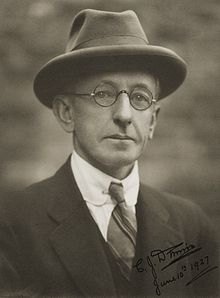 There are two poems that I know by heart. The first is by the South Australian poet CJ Dennis who grew up at Auburn. There’s a statue of him in Laura. It won me the Grade 5 recitation competition at Wellers Hill State Primary School. It is about an insect – a remarkable, peculiar kind of thing that is very shy.
There are two poems that I know by heart. The first is by the South Australian poet CJ Dennis who grew up at Auburn. There’s a statue of him in Laura. It won me the Grade 5 recitation competition at Wellers Hill State Primary School. It is about an insect – a remarkable, peculiar kind of thing that is very shy.
There’s a very funny insect that you do not often spy,
And it isn’t quite a spider, and it isn’t quite a fly;
It is something like a beetle, and a little like a bee,
But nothing like a woolly grub that climbs upon a tree.
Its name is quite a hard one, but you’ll learn it soon, I hope.
So try:
Tri-
Tri-anti-wonti-
Triantiwontigongolope.
[Full poem here.]
The Triantiwontigongolope. If you weren’t paying attention, you’d never see one. Of course, children understand that MAYBE there really is one out there to be discovered – hiding at the bottom of the garden with the fairies and elves. But to see it, you’d have to be quiet and still, or it would never come out.
 The other poem is by the famous American poet Robert Frost. You’ll probably recognise it.
The other poem is by the famous American poet Robert Frost. You’ll probably recognise it.
Two roads diverged in a yellow wood,
And sorry I could not travel both
And be one traveller, long I stood
And looked down one as far as I could
To where it bent in the undergrowth;
Then took the other, as just as fair,
And having perhaps the better claim,
Because it was grassy and wanted wear…
I shall be telling this with a sigh
Somewhere ages and ages hence:
Two roads diverged in a wood, and I-
I took the one less travelled by,
And that has made all the difference.
[The original poem is slightly longer and it is here.]
Two paths. One obvious. One overgrown. If you weren’t paying attention, you’d miss it and stay on the main track. A less-travelled way – a choice to step off the familiar, well-worn route for an adventure into the unknown.
In the Gospels, particularly Matthew, Mark and Luke, the call to follow Jesus, to become his disciples, is presented as a clear choice. “Leave your fish and chip shop and follow me, Pauline. Kerrigan, forget your Castle. And let Uncle Harry bury himself.”
While many listen to Jesus’ invitation, not everyone hears the call. Some people, though, see this untrodden path that could be leading anywhere, and step onto it. The Gospel of John, however, has a different emphasis alongside this immediate response to call. What does it mean for us to stay with Jesus?
Today and tomorrow we’re focusing on discipleship, particularly on making disciples. If making or growing or nurturing disciples is a genuine process, then it will also be about who we are as followers of Jesus.
This morning is more about being disciples and tomorrow is about what disciples do.
Christian Education Research
My choice of biblical texts arises from the research that I’ve been undertaking over the last few years and am now trying to complete as a doctoral thesis.
The national Assembly commissioned me to undertake a study of Christian education across the Uniting Church. I framed that around the question – how do we form and educate people in congregations to be lifelong disciples of Jesus Christ for the sake of God’s mission.
I put together a diverse sample of 22 congregations who were supposed to be doing this well – from Mapoon north of Weipa to North Hobart to Clare to Bunbury in WA to Parkes in Western NSW and many points in between.
I interviewed the key leader who was usually the minister or ministers. In some instances this person was resourcing lay-led congregations.
I framed the study to explore three things
- In what ways was the congregation learning about being disciples? What kind of learning community were they?
- How was the church leadership helping them learn and grow? What kind of leaders were they?
- How was their learning about discipleship related to their mission? How were they learning for mission and from mission?
None of these congregations or ministers were perfect by any means. But they were working intentionally on how to grow disciples. And I came away from each interview feeling energised, encouraged and inspired by what they had to say.
So my questions were about how these three things are related when we think about forming and educating lifelong disciples.
Because I wanted to have a dialogue between these interviews and some educational theory and the Scriptures and theology, I asked myself what biblical texts came to mind when I reflected on my research.
So, today and tomorrow I’d like to explore with you the two texts that arose from my interviews and thinking about forming and educating disciples.
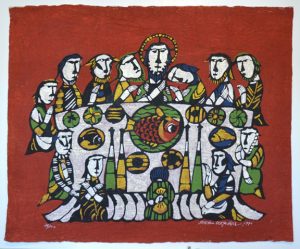 Introduction to John 15
Introduction to John 15
Jesus and his disciples are gathered for supper prior to the Passover. During the meal, Jesus washes his disciples feet and speaks to them about being a servant.
He indicates that someone will betray him, and Judas goes out into the night.
He gives his disciples a new commandment – “That you love one another. Just as I have loved you. By this everyone will know that you are my disciples.”
Then Jesus foretells Peter’s denial.
John 14 to 16 features a long speech from Jesus, followed by his prayer for the disciples in John 17. This is the longest section of Jesus’ speaking anywhere in the Gospels. And I imagine the disciples looking at each other about half-way through chapter 16 – Jesus is talking on and on – and someone whispers, “Man, right now I wish we were back in Mark’s Gospel.”
There is a view that this Gospel is primarily an evangelical document aimed at unbelievers. There is also a convincing case that John writes firstly for his Christian community who are being persecuted, and under threat of being cut off by the Jewish community. Under those circumstances, John writes to remind them of Jesus’ story and to who they are to be as his followers.
Let us read it today through the lens of being these disciples. Maybe you can identify with those who might feel that they are suffering because of their faith and need some encouragement to hang in there. Maybe you don’t, but you could imagine what that might be like for others.
I invite you to read the text in your table groups. Someone can volunteer to read. If your first language isn’t English, and you have a Bible in your first language, then you are welcome to read from that.
Next, I want to invite you to read the text silently to yourself, and in particular to note the words “Abide”, “Father” and “Fruit”. You might want to make a mark on the text. And take some time to reflect on what is being said about these three things.
Discussion
Now I invite you, in your table groups – each to speak one part of the text that stood out to you today, and just in a sentence or two say something about what you are hearing. Let’s not discuss at this point – let’s listen to one another and to the Spirit speaking through the text.
Abide in Me
I am the true vine, and my Father is the vine-grower.
Abide in me as I abide in you. Just as the branch cannot bear fruit by itself unless it abides in the vine, neither can you unless you abide in me.
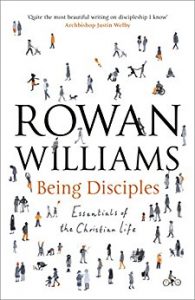 The word “Abide” in Greek is meno which means to dwell or to inhabit, and it also means to persist. So “abide” is about place and it’s about time. Rowan Williams, the former Archbishop of Canterbury wrote a brilliant little book called “Being Disciples”.
The word “Abide” in Greek is meno which means to dwell or to inhabit, and it also means to persist. So “abide” is about place and it’s about time. Rowan Williams, the former Archbishop of Canterbury wrote a brilliant little book called “Being Disciples”.
We know that to be a disciple is to be a learner, an apprentice. Williams says that the main characteristic of being a disciple is not just turning up when you feel like it. It isn’t about turning up to class, it is about being in relationship with the teacher.
To be a student, a follower, a disciple in the ancient world was to follow the Master everywhere, to wait outside his door, to hang on his every word.
You’ve heard the jokes about the Guru who says to his followers something ling, “The cat tries to catch the bird, but the bird escapes.” The students become agitated. “What does this new teaching mean?” They ponder the Master’s teaching for days, discussing its possible meanings. Finally the disciples send one of them to ask the Master what this new teaching meant. The Master looks puzzled, then laughs and points to his cat playing near the tree. “I was watching Puddles playing”.
Rowan Williams says that to be a disciple is to be “in a state of being where you are listening and learning without interruption”. Disciples are hanging on every word and action of their Master. All the time. To abide is to be attentive, to be aware – not for esoteric wisdom that might come in useful sometime, like a mathematical theory, but for the wisdom of the Master that has meaning for now and for later.
Disciples are also expectant. They wouldn’t be here if they didn’t expect that the Master will give a teaching or a sign that will make them go “Aha! Wow! Yes! I get it” It will transform how they see things. Disciples abide with the Master because they know that something remarkable could happen at any moment.
To abide is to pay attention – to be very still, to listen and watch with great expectancy. If you don’t pay attention, you’ll miss the fork in the road. You’ll never see the Triantiwontigongolope come out of its hiding place.
What does it mean for us to abide in Jesus? How do you teach someone else to pay attention to Jesus? To stop and listen for his whispered word or fleeting sign?
Research Interview – Mid-Lachlan Mission Area NSW – Rev Tom Stuart
 When I conducted my Assembly research, I met with Tom Stuart who was part of the ministry team for the Mid Lachlan Mission Area, centred around the town of Parkes in western NSW. Working with 5 small rural churches, they started something called Project Reconnect, which has spread nationwide.
When I conducted my Assembly research, I met with Tom Stuart who was part of the ministry team for the Mid Lachlan Mission Area, centred around the town of Parkes in western NSW. Working with 5 small rural churches, they started something called Project Reconnect, which has spread nationwide.
Tom was meant to lead worship across those five churches every Sunday, but realised that made no sense. So he and others taught people in the 5 churches how to lead worship and each week they produced a worship DVD for these churches to use only for the parts of the service that they couldn’t lead themselves.
If your church didn’t have a preacher for the day, there was a sermon on the DVD, but it only went for 8 minutes. After the sermon, the DVD had four questions for group discussion. The reason for the questions was that you had heard a message from another person in their own context – now you were invited to reflect on what the Spirit was saying to your community.
The four questions asked about what God was saying to you, to your congregation, and about what your congregation might mean in your local community.
Here is an excerpt from my interview with Tom – 14 minutes. [I didn’t show this in the Bible study for the sake of time]
FED Stories – Tom Stuart Part 1 from Craig Mitchell on Vimeo.
Tom said several things
- people began to listen more closely for the ‘word’ for them today
- people began to tell stories to one another that they had never spoken in their congregation
- their conversation after worship changed
- telling their stories in what for them was a sacred place and sacred time, helped them to see their stories as sacred, to see their stories as part of the Jesus story
To abide is to learn to listen, to pay attention. Who taught you to pay attention, to abide with Jesus?
But why are we paying attention to Jesus? Let me introduce my second point with a brief video clip.
Sometimes when you pay attention to someone, when you abide with them – you notice discrepancies between what they say and what they do, or the values they espouse and how they behave.
Have you ever been that person? I might have on occasion – ask my kids. We could all name people in public life whose words and actions seem incongruous, even hypocritical. They say one thing and do another.
The Gospel of John is characterised by Jesus speaking a LOT of words. Not only that, Jesus speaks a lot about himself. He might sound like a certain egotistical politician. “I’m here to speak to you today. I’m going to say some very important things. I’m the only one who gets to say them. They’re all about me.”
Jesus says:
I am the true vine
I am the bread of Life
I am the light of the world
I am the gate for the sheep
I am the good shepherd
I am the resurrection and the life
I am he
Throughout the Gospel of John, the Son of Yahweh, the great “I am”, says again and again “I am he”. Jesus speaks about himself to reveal who he is, to indicate his relationship with the Father, and to explain his mission.
Throughout the Gospel of John, Jesus tells his followers that if they want to know what the Father is like and what the Father is doing – they should pay attention to his words and actions. Verse 15 “I have made known to you everything that I have heard from my Father.” Unlike the hypocritical politician, Jesus’ words and actions are consistent, not only within themselves, but with the being of the Father.
The Father and the Son have a relationship of mutual love. But it isn’t about affection, it is about kinship. Jesus and the Father are one because the Son comes from the Father. They are one. The children of God are born of God, but Jesus comes from God. He is of the Father. To know Jesus is to know the Father as much as we children possibly can.
Jesus doesn’t just pass on life from God – it is in him. The work that Jesus does and the work that the Father does are the same. God has a unity of being and purpose that the disciples can only experience by being connected to the true vine.
In the Beginning
In the beginning was the Word, and the Word was with God, and the Word was God.
In the beginning of the Gospel of John, it is revealed to us that the Word, the Logos, present in and even before Creation, has come to live among us, full of grace and truth. When Jesus speaks in John’s Gospel, this Logos is present in our time, in our place. The Word is made flesh and also the flesh is WORD. Living Word. Not words on a page.
The way that Jesus speaks – “I say to you”, “I have said to you”, “This will come to pass” – connect past, present and future. His words are not so much timeless as timely and pointing to the future – not so much fixed in stone as leading from Creation to the fulfilment of all things.
To say that Jesus Christ is the same yesterday, today and forever, as the book of Hebrews says, is not to simply say that Jesus is inert, like a rock. Paul Tillich said that Christ must be discovered anew by every generation. Jesus is not like a rock that every generation who buys an old house finds buried in the same place in the back garden.
Jesus is more like a rock star. Imagine Jesus and the 12 playing their worldwide reunion tour. Part-way into the concert, Jesus says, “We’re going to play some songs from our new album”. The audience is silent, momentarily. Then there is the buzz of everyone talking, not listening.
“I loved their earlier stuff.”
“I play Jesus’ Greatest Hits all the time.”
“Play STAIRWAY TO HEAVEN!” someone yells out.
“Play “YOU’VE GOT A FRIEND!”
“Do you like his new music?”
“Haven’t really listened to it.”
“Me neither.”
“I’ve got their whole back catalogue.”
“Yeah. what’s your favourite album?”
“It has to be 33 1/3. Those backing harmonies by James and John. Amazing. And Judas playing the tambourine.”
“Actually, it wasn’t a tambourine.”
We want to keep playing Jesus Greatest Hits when he’s putting out new music all the time. The Word was made flesh. The flesh was also Word in our midst – the One who is for us the Living Word and through the Holy Spirit continues to reveal Godself to us.
If we abide in Jesus, we will come to glimpse the love and the purposes of God from whom he comes. In fact, that’s the only way we will know.
Bearing Fruit
I invite you to take and eat a grape from the table and reflect on words from John 15.
He removes every branch in me that bears no fruit. Every branch that bears fruit he prunes to make it bear more fruit. You have already been cleansed by the word that I have spoken to you.
I am the vine, you are the branches. Those who abide in me and I in them bear much fruit, because apart from me you can do nothing.
Reflect for a moment: When do you bear fruit? What helps you bear fruit? Who benefits from you bearing fruit?
The Greek words for pruning and cleansing here sound similar. Verse 2 isn’t a threat to Jesus’ followers, since verse 3 goes on to say that they have been cleansed. “You’ve been cleansed. You’re here with me. Others have been removed.”
If we’re not abiding in Jesus, we won’t bear fruit, which is to do the will of the Father, to be on about the mission of Jesus – that’s the only kind of fruit that there is. To abide in Jesus is to abide in his love, which is an expression of the Father’s love. But to abide in Jesus’ love is to keep his commandments.
So is it that we obey Jesus, and then we can abide in his love, and then we can bear fruit? Or is it that when we abide in Jesus we will be able to keep his commandments, the greatest of which is love, and in so doing we will bear fruit?
It seems here to be the latter. When we abide in Jesus, we know the love of the Father. We can only obey in response to God’s love and presence in our lives. The internal life of the community of disciples and their mission are inseparable. When we abide in Christ, then we are one in Christ, and we bear fruit. But to be one in Christ, we’d first have to be paying attention – to the person and words of Jesus past, to Jesus known to us through the Spirit now, and to the trajectory of God’s purpose and mission toward the future.
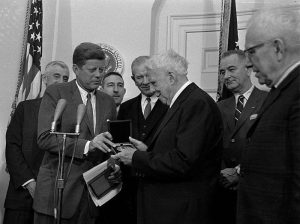 A Poem
A Poem
Robert Frost was invited to write a poem for the inauguration of John F. Kennedy as President of the US in 1961. At the time he spoke this poem from memory rather than the one he had prepared for Kennedy. It is a poem about colonisation, which means that it is not easy listening – but look carefully to what it says about abiding.
[The photo is of Frost receiving the Congressional Medal from Kennedy in 1960.]
The Gift Outright – see text here
I finished with a favourite poem/prayer by Ed Ingebretsen, Professor of literature and ordained minister. I love his work. [I found out after I left Duke that he had been doing his PhD there at the same time that I was there!] I adapted the refrain slightly to fit the theme. [The original poem says “God down Lord” rather than “Abide with Us”
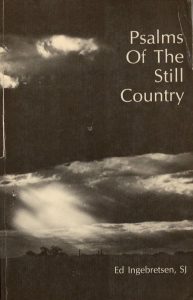 Tell us a story that will save us
Tell us a story that will save us
Tell us a story that will save us
(and that will have been enough)
all the great songs have been prayed
save only one
Tell us a story that will save us:
Abide with us, Lord, and bring us home
May our promises free us, not chain us
May what we desire fill us, not entrap us
May those persons we love finish us,
not bind us
Abide with us, Lord, and bring us home
You are our history, Lord
We neither begin nor end outside you
May you be for us not weapon,
not answer, but cause of peace.
Abide with us, Lord, and bring us home
May our words create, not destroy
May our hands nurture, not break
May our dreams lead and encourage us,
not trap us in despair.
Abide with us, Lord, and bring us home
We are anxious about many things
We are lost in many ways
Abide with us, Lord, and bring us home
Ed Ingebretsen, Psalms of the Still Country, Saratoga: Resource Publications, 1982. p59 – available here.
Also see To Keep from Singing, Saratoga: Resource Publications, 1985. – available here.
[Footnote: I realised today that the two poems that I could recite from memory are like the Greatest Hits. I only discovered The Gift Outright last week. New songs.]
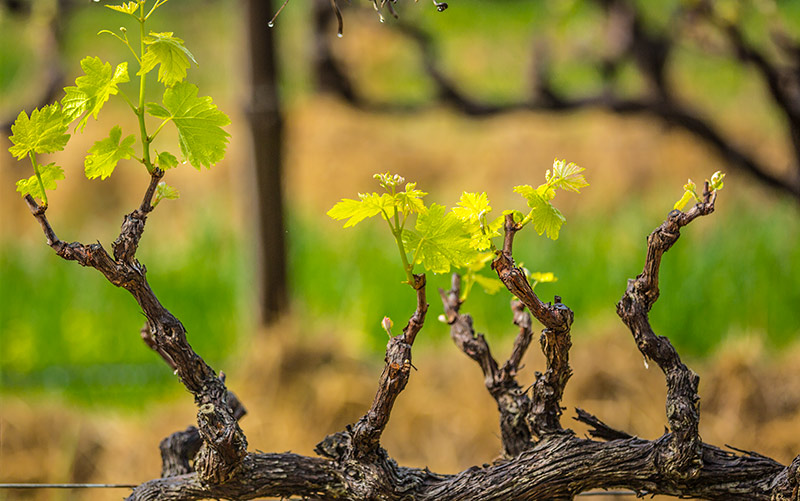
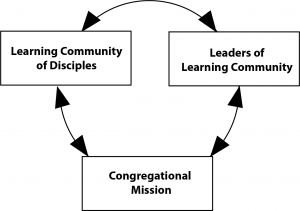
Leave a Reply